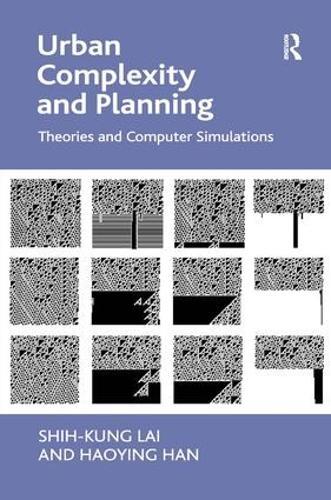Overview
In recent years, there has been a new understanding of how cities evolve and function, which reflects the emergent paradigm of complexity. The crux of this view is that cities are created by differentiated actors involved in individual, small-scale projects interacting in a complex way in the urban development process. This 'bottom up' approach to urban modeling not only transforms our understanding of cities, but also improves our capabilities of harnessing the urban development process. For example, we used to think that plans control urban development in an aggregate, holistic way, but what actually happens is that plans only affect differentiated actors in seeking their goals through information. In other words, plans and regulations set restrictions or incentives of individual behaviour in the urban development process through imposing rights, information, and prices, and the analysis of the effects of plans and regulations must take into account the complex urban dynamics at a disaggregate level of the urban development process. Computer simulations provide a rigorous, promising analytic tool that serves as a supplement to the traditional, mathematical approach to depicting complex urban dynamics. Based on the emergent paradigm of complexity, the book provides an innovative set of arguments about how we can gain a better understanding of how cities emerge and function through computer simulations, and how plans affect the evolution of complex urban systems in a way distinct from what we used to think they should. Empirical case studies focus on the development of a compact urban hierarchy in Taiwan, China, and the USA, but derive more generalizable principles and relationships among cities, complexity, and planning.
Full Product Details
Author: Shih-Kung Lai ,
Haoying Han
Publisher: Taylor & Francis Ltd
Imprint: Routledge
Edition: New edition
Weight: 0.690kg
ISBN: 9780754679189
ISBN 10: 0754679187
Pages: 288
Publication Date: 28 March 2014
Audience:
College/higher education
,
General/trade
,
Tertiary & Higher Education
,
General
Format: Hardback
Publisher's Status: Active
Availability: In Print

This item will be ordered in for you from one of our suppliers. Upon receipt, we will promptly dispatch it out to you. For in store availability, please contact us.
Reviews
'Another great book from Asia's most prominent urban complexity scholar. Learn from the elegant models and reflect on what they say about the cities we live and work in; or look beyond the models and re-think urban theory and practice.'Chris Webster, Cardiff University, UK
Author Information
Dr Shih-Kung Lai is a lecturer in Real Estate and Built Environment at the National Taipei University, Taiwan, R. O. C. and Haoying Han is an Associate Professor in the Department of Land Management, Zhejiang University, China.




